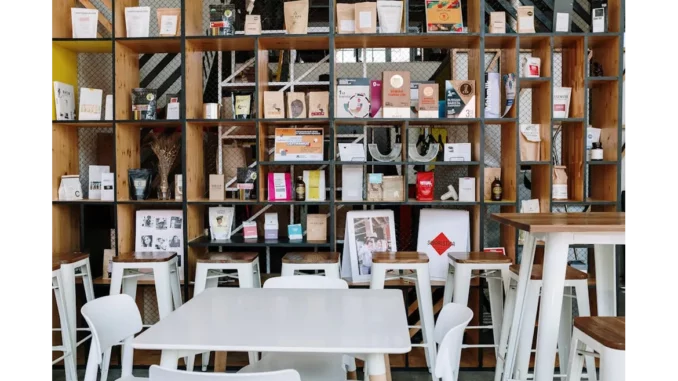
In my ongoing exploration of sustainable building practices and products, I recently had the pleasure of interviewing a dedicated advocate for eco-friendly architectural solutions, Melissa, who has extensive experience with Rakks Architectural Shelving and Hardware. Her insights into the sustainable use of wood fibre in contemporary shelving systems were both enlightening and inspiring.
Need a mortgage? Focus360 Energy provides Professional Consultant Certificates. Learn more.
Melissa, who has been in the interior design industry for over a decade, shared her journey towards integrating sustainable materials into her projects. “As a designer, I am always on the lookout for materials that are not only aesthetically pleasing but also environmentally responsible,” she began. “When I discovered Rakks’ new line of wood shelves, I was impressed by their commitment to sustainability and the quality of their products.”
Rakks’ wood shelves are crafted from a combination of post-consumer recycled and recovered wood, a practice that Melissa noted as a significant step forward in reducing the carbon footprint of construction materials. “The fact that these shelves are manufactured with 30% post-consumer recycled wood and at least 70% recycled or recovered wood is a testament to their dedication to sustainability,” she said. “It’s crucial for us in the design industry to support such initiatives.”
Melissa highlighted that Rakks’ products meet the Composite Panel Association standard 4-11, which ensures the sustainable use of wood fibre. “This certification is important because it guarantees that the wood used in these shelves is sourced responsibly and processed in an eco-friendly manner,” she explained. “It gives designers and clients peace of mind knowing that they are making a responsible choice.”
One of the standout features of Rakks’ shelving systems is their seamless integration with various architectural settings. “The shelves come in beautiful Acacia, Oak, Black, and White finishes, which allows them to blend effortlessly with different design aesthetics,” Melissa noted. “And because they are manufactured in a green facility, you know that every step of the production process is geared towards sustainability.”
Rakks’ commitment to sustainability extends beyond just the materials they use. Their products are certified by several prestigious organisations, including the US Green Building Council (USGBC), which contributes towards satisfying credits under the LEED®️ certification program. “Achieving LEED®️ credits is a significant factor for many of my clients,” Melissa said. “It demonstrates that the products we use meet high standards for energy efficiency and environmental responsibility.”
Moreover, Rakks’ shelves are also certified by GREENGUARD for low chemical emissions, ensuring a healthier indoor environment. “Indoor air quality is a major concern, especially in residential projects,” Melissa emphasised. “Knowing that these shelves have low VOC emissions means that they contribute to a healthier living space.”
Another certification that Melissa pointed out was from the Forest Stewardship Council (FSC), which guarantees that the raw materials are sourced from responsibly-managed forests. “This is a crucial aspect of sustainability,” she said. “It ensures that the forests are managed in a way that preserves biodiversity and supports local communities.”
Additionally, Rakks’ shelves meet the Programme for the Endorsement of Forest Certification (PEFC) standards, further reinforcing their commitment to sustainable forestry practices. “These certifications are not just labels; they represent a rigorous process of ensuring that the materials we use are as environmentally friendly as possible,” Melissa explained.
One of the practical aspects that Melissa appreciated about Rakks’ products is their availability in custom sizes and finishes. “The ability to special order shelves to meet specific design requirements is a huge advantage,” she said. “It allows for greater flexibility and creativity in our projects.”
Melissa’s experience with Rakks’ shelving systems has also been positive in terms of logistics. “The fact that the wood shelves can ship out within two business days when purchased on their own is incredibly convenient,” she noted. “And even when ordered as part of a larger system, the one to four-week shipping timeframe is quite reasonable.”
In conclusion, Melissa’s insights into the sustainable use of wood fibre in Rakks’ shelving systems highlight the importance of choosing eco-friendly materials in modern design. “Sustainability is not just a trend; it’s a necessity,” she emphasised. “By choosing products like Rakks’ wood shelves, we are making a conscious effort to reduce our environmental impact and promote a healthier planet.”
Her passion for sustainability and her dedication to integrating eco-friendly materials into her projects serve as an inspiration for designers and consumers alike. “It’s about making informed choices that benefit not just our clients but also the environment,” Melissa said. “And Rakks’ shelving systems are a perfect example of how we can achieve that balance.”
Kenneth George


Be the first to comment